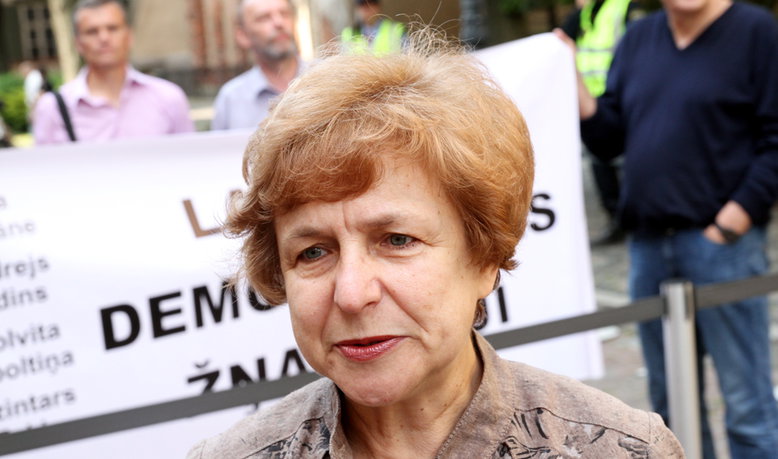
The so-called Latvian Human Rights Committee, connected to pro-Russian MEP Tatjana Ždanoka, received about €95,000 from the Fund for the Legal Protection and Support of Russian Federation Compatriots Living Abroad last year, reported Latvian Television LTV’s investigative news program De facto Sunday.
Members of the board of the Committee, on their part have transferred up to €10,000 to Ždanoka’s political party Latvia’s Union of Russians.
The Fund for the Legal Protection and Support of Russian Federation Compatriots Living Abroad was created by Russia’s Foreign Affairs Ministry and is led by Foreign Minister Sergey Lavrov.
Only those organizations and projects based in Latvia which have previously coordinated their activities with Russia’s foreign policy objectives are eligible for financing from the fund, reported De facto. The Fund was launched three years ago and regularly transfers significant sums of money to the Latvian Human Rights Committee. In 2012 the amount was €31,000, in 2013 it was €98,000.
The Committee told De Facto that the Fund’s financing helps pay for legal advice in the aid of pensioners receiving Russian retirement payments and residents of denationalized apartment houses whose rental rights are in jeopardy.
Some of the monies also go to publishing materials in media such as the newspaper Vesti, radio PIK FM and the Daugavpils newspaper Million. The Committee also organizes conferences and publishes books about the situation of non-citizens and Russian-speakers in Latvia.
Ždanoka is the founder of the Latvian Human Rights Committee and other members of the board are also in leading positions in the Latvia’s Union of Russians party. Last year the activists donated more than €10,000 to the party, not managing to get into the 12th Saeima, but sending Ždanoka back to Strasbourg and Brussels for another term just barely.
Since then she has supported Russian foreign policy interests such as advocating in favor of the Crimea-annexation, voting against financial aid to Ukraine and frequently appearing on Russian state media.
The Security Police in electronic correspondence with De facto pointed out that the Russian Federation’s money could be being used for purposes other than publications and conferences.
But Ždanoka sharply denied suggestions that her party was being funded at a level once-removed by the Russian Fund for the Legal Protection and Support of Russian Federation Compatriots Living Abroad.
“That’s complete foolishness, the Fund supports specific expenditures, nobody receives any salary. There’s research, specific costs that are covered,” she said.
She added that the Russian sources of support are necessary since the party is prohibited from receiving funds from the Latvian state. Moreover, other states also have funds that support their compatriots abroad, she argued.
By LSM.lv





